Plenary Lecture
Plenary speakers
Release Time:03.01.2024
|
|
Title: The Negative Imaginary GridProf. Ian PetersenFellow of Australian Academy of Science, Fellow of IEEE and IFAC, AustraliaAustralian National University |
Abstract: In this presentation, we first present a brief overview of negative imaginary systems theory including basic linear definitions and stability results, applications to consensus in networked negative imaginary systems, notions of nonlinear negative imaginary systems and corresponding stability results, and consensus in networked nonlinear negative imaginary systems. We then consider the application of these ideas to frequency and angle stability in the electrical transmission grid. We first show that the framework of networked nonlinear negative imaginary systems can provide a way for understanding the frequency and angle stability of the current transmission grid. It is shown that this framework also motivates the introduction of fast controllers into the grid using big batteries as actuators and phase measurement units as sensors. It is shown that such controllers can improve the energy carrying capacity of existing transmission lines and improve the overall resilience of the grid as more and more renewable resources are added. In particular, the theory allows controllers to be added one transmission line at a time, as they become overloaded within the existing grid.
Bio: Ian R. Petersen was born in Victoria, Australia. He received a Ph.D in Electrical Engineering in 1984 from the University of Rochester. From 1983 to 1985 he was a Postdoctoral Fellow at the Australian National University. From 2017 he has been a Professor at the Australian National University in the School of Engineering. He was the Interim Director of the School of Engineering at the Australian National University from 2018-2019. From 1985 until 2016 he was with UNSW Canberra where he was a Scientia Professor and an Australian Research Council Laureate Fellow in the School of Engineering and Information Technology. He has previously been ARC Executive Director for Mathematics Information and Communications, Acting Deputy Vice-Chancellor Research for UNSW and an Australian Federation Fellow. He has served as an Associate Editor for the IEEE Transactions on Automatic Control, Systems and Control Letters, Automatica, IEEE Transactions on Control Systems Technology and SIAM Journal on Control and Optimization. He also served as an Editor for Automatica. He is a fellow of IFAC, the IEEE and the Australian Academy of Science. His main research interests are in robust control theory, quantum control theory and stochastic control theory.
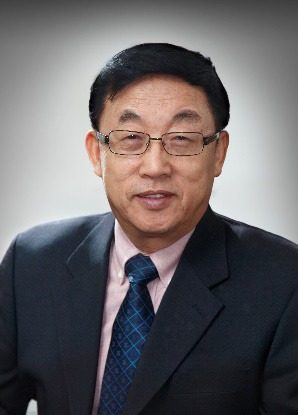 |
Title: Intelligent Control System for Low-Carbon Operation of Energy Intensive Equipment Based on End-edge-cloud CollaborationProf. Tianyou ChaiAcademician of CAE Member, Fellow of IEEE and IFAC, ChinaNortheast University |
Abstracts: To address the challenges in operation optimization decision and control of complex industrial system, this talk proposes the design method of intelligent optimal decision and control integrating system of complex industrial process. The design method of the system combines control and optimization with prediction, mechanism analysis with deep learning, and digital twin with reinforcement learning, realizing the self-adaption, self-learning, and self-optimization of the system. Based on the tight conjoining of and coordination between Industrial AI, Industrial Internet, Industrial Metauniverse technology and industrial automation and information technology, and by combining the end-edge-cloud collaboration technology of Industrial Internet and PLC control system, an intelligent decision and control integrating system based on end-edge-cloud collaboration is developed. The system has been successfully applied in the energy intensive equipment—fused magnesium furnace and achieved remarkable results in the reduction of carbon emission.
Bio: Tianyou Chai received the Ph.D. degree in control theory and engineering in 1985 from Northeastern University, Shenyang, China, where he became a Professor in 1988. He is the founder and Director of the Center of Automation, which became a National Engineering and Technology Research Center and a State Key Laboratory. He is a member of Chinese Academy of Engineering, IFAC Fellow and IEEE Fellow, Editor-in-Chief of ACTA AUTOMATICA SINICA and Control Engineering of China. He has served as director of Department of Information Science of National Natural Science Foundation of China from 2010 to 2018. His current research interests include modeling, control, optimization and integrated automation and intelligence of complex industrial processes. He has published 356 peer reviewed international journal papers. His paper titled Hybrid intelligent control for optimal operation of shaft furnace roasting process was selected as one of three best papers for the Control Engineering Practice Paper Prize for 2011-2013. He has developed control technologies with applications to various industrial processes. For his contributions, he has won 5 prestigious awards of National Natural Science, National Science and Technology Progress and National Technological Innovation, the 2007 Industry Award for Excellence in Transitional Control Research from IEEE Multiple-conference on Systems and Control, and the 2017 Wook Hyun Kwon Education Award from Asian Control Association.
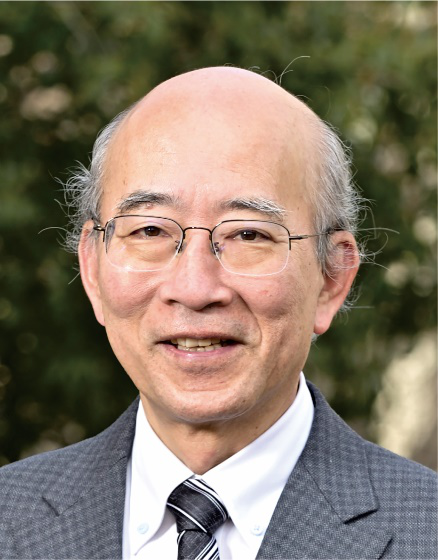 |
Title:Recent and Ongoing Advances in Magnetic Suspension TechnologyProf. Takeshi MizunoPast-President of the Asian Control Association, JapanSaitama University |
Abstract:It still fascinates most people to suspend an object in air without any visible means. Such suspension is achieved by magnetic force in magnetic suspension. The non-contact property of the suspended object (floator) to the stator leads to no mechanical friction and wear during operation. This advantage has already given rise to various industrial applications such as Maglev for carrying people, and AMB (active magnetic bearings) for suspending a rotating object (rotor). In the latter example, turbo machinery such as turbo-molecular pump is the most successful application. Research and development on magnetic suspension have been actively conducted in recent decades. It may make people think that this technology has been mature. However, technical advances are still strongly required to make full use of this unique technology and increase its industrial applications. The main subject of this talk is to introduce several recent advances in magnetic suspension technology and ongoing projects to show the high potential for application of this technology. First, an overview of the technological fundamentals is presented. Then, several advancements and derivatives evolving from the basic configurations are explained.
Bio: Takeshi Mizuno received the B.E., M.E., and D.E. degrees from the University of Tokyo, Japan, in 1978, 1980, and 1985, respectively. He was a Research Associate at the Institute of Industrial Science, the University of Tokyo from 1980 to 1985, and an Assistant Professor at Polytech University of Japan from 1985 to 1988. From 1988 to 2000, he was an Associate Professor and a Professor from 2000 to 2021 at Saitama University where he was the Dean of the Faculty of Engineering in FY2020. From April 2021, he has been an Emeritus Professor and a Senior Professor, and additionally from August 2021, a Specially Appointed Professor at Saitama University. His research interests pertain to control engineering, mechatronics, magnetic suspension, magnetic bearing, active vibration control, vibration isolation, micro-assembly, ultrasonic mechatronics, and instruments for measuring mass and force. He is the author of 184 journal papers and 330 international conference publications. He has received the Outstanding Paper Award from the Society of Instrument and Control Engineers (SICE), 1998 and 2006, Outstanding Paper Award from the Japan Society of Mechanical Engineers (JSME), 2004, 2012, and 2019, Best Paper Award from the Japan Society of Applied Electromagnetics and Mechanics (JSAEM), 2006, 2014, and 2017, Outstanding Paper Award from FANUC Foundation, 2020. He served as the Editor-in-Chief of Journal of System Design and Dynamics (JSDD) from 2008 to 2011 and is serving as an Associate Editor of Mechatronics. He served as the President of Asian Control Association (ACA) from 2018 to 2020. He was the General Chairperson of the Sixth International Conference on Motion and Vibration Control (6th MOVIC), the Eleventh International Symposium on Magnetic Bearings (ISMB-11), the 20th Magnetodynamics (MAGDA) Conference in Pacific Asia, and the 12th Asian Control Conference (ASCC 2019).
 |
Title: Learning-Based Control: A New Direction in Control TheoryProf. Zhongping JiangAcademician of the European Academy of Sciences, Fellow of IEEE and IFAC, USANew York University |
Abstract: Model-based control has played a vital role in many branches of engineering and sciences. The purpose of this talk is to present a different paradigm for control systems design. Instead of designing controllers from model, we learn desirable controllers directly from data, a new direction in control theory that arises from emerging applications in artificial intelligence and autonomous systems. Learning-based control is a direct control method aimed at developing computationally simple, analytically tractable (reinforcement) learning algorithms with guaranteed stability, robustness and optimality for the closed-loop system. In this talk, I will first review early developments in learning-based control for continuous-time linear and nonlinear systems with unknown dynamics. Then, I will present recent results in robustness of learning-based controllers. Finally, we illustrate the effectiveness of learning-based control via its applications to autonomous vehicles and biological motor control.
Bio: Zhong-Ping JIANG received the M.Sc. degree in statistics from the University of Paris XI, France, in 1989, and the Ph.D. degree in automatic control and mathematics from ParisTech-Mines (formerly called the Ecole des Mines de Paris), France, in 1993, under the direction of Prof. Laurent Praly. Currently, he is a Professor of Electrical and Computer Engineering at the Tandon School of Engineering, New York University. His main research interests include stability theory, robust/adaptive/distributed nonlinear control, robust adaptive dynamic programming, reinforcement learning and their applications to information, mechanical and biological systems. In these fields, he has written six books and is the author/co-author of about 600 peer-reviewed journal and conference papers. Prof. Jiang is a recipient of the prestigious Queen Elizabeth II Fellowship Award from the Australian Research Council, CAREER Award from the U.S. National Science Foundation, JSPS Invitation Fellowship from the Japan Society for the Promotion of Science, Distinguished Overseas Chinese Scholar Award from the NSF of China, and several best paper awards. He has served as Deputy Editor-in-Chief, Senior Editor and Associate Editor for numerous journals. Prof. Jiang is a Fellow of the IEEE, IFAC, CAA and AAIA, a foreign member of the Academia Europaea (Academy of Europe) and the European Academy of Sciences and Arts, and is among the Clarivate Analytics Highly Cited Researchers and Stanford’s Top 2% Most Highly Cited Scientists. In 2022, he received the Excellence in Research Award from the NYU Tandon School of Engineering.
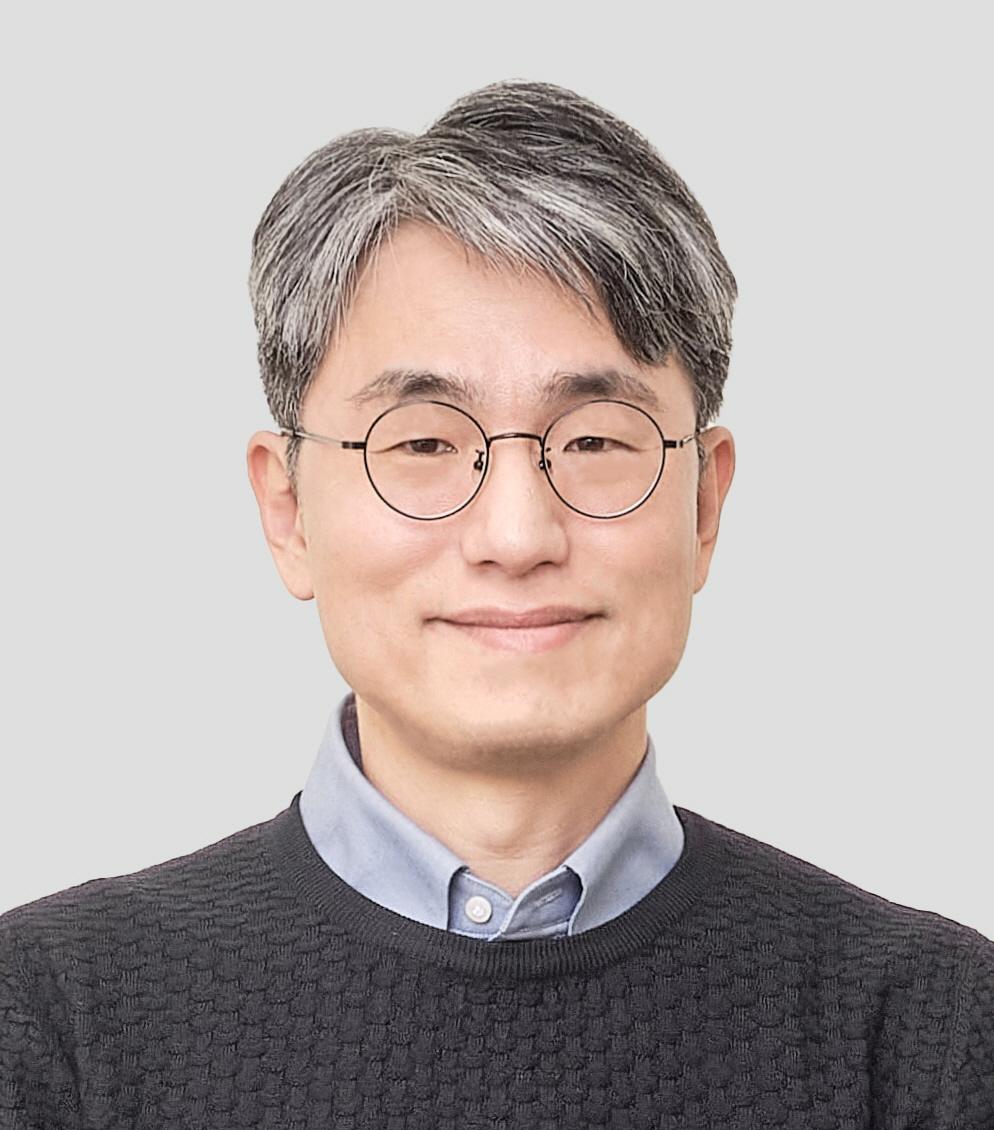 |
Title: Coordination of heterogeneous multi-agent systems via blended dynamics theoremProf. Hyungbo ShimGeneral Chair of IFAC World Congress 2026, South KoreaSeoul National University |
Abstract: When a diverse set of dynamics are compelled to synchronize under a coupling condition, they display emergent behavior characterized by the blended dynamics. This phenomenon is crucial in designing heterogeneous multi-agent systems, where each agent collaborates towards a goal in a coordination. Such multi-agent systems or algorithms benefit from stability exchange among agents, an initialization-free nature allowing seamless integration or disengagement of agents, and resilience to production flaws and disturbances in node dynamics. Additionally, for each agent to undertake distinct tasks while aligning with others for a collective objective, certain internal variables of each agent must reach consensus, and the agreed-upon value should reflect some information about individual agents. We substantiate this by demonstrating that the internal variable acts as the Lyapunov function for decentralized control and as the Lagrange multiplier in the distributed optimization of resource allocation problems.
Bio: Hyungbo Shim received his B.S., M.S., and Ph.D. degrees from Seoul National University, Korea, and held a post-doctoral position at the University of California, Santa Barbara until 2001. He joined Hanyang University in Seoul in 2002. Since 2003, he has been with Seoul National University, Korea. He has served as an associate editor for Automatica, IEEE Transactions on Automatic Control, International Journal of Robust and Nonlinear Control, and European Journal of Control, as well as an editor for International Journal of Control, Automation, and Systems. He is serving as the general chair for IFAC World Congress 2026. His research interests include stability analysis of nonlinear systems, observer design, disturbance observer, secure control systems, and synchronization in multi-agent systems. He is a senior member of IEEE and a member of Korean Academy of Science and Technology.
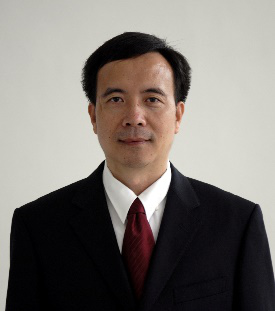 |
Title: Distributed Online Optimization for Multi-Agent NetworksProf. Lihua XieFellow of Academy of Engineering of Singapore, Fellow of IEEE and Fellow of IFACPresident's ChairNanyang Technological University, Singapore |
Abstract: Online optimization features that the decision maker does not have access to future information on cost functions and the variations of cost functions generally do not obey any statistical distributions for sequential decision-making. It has a lot of applications in sensor networks, robotics, smart grids, machine learning, etc. With the emergence of networked agents in many applications, there has been recurring interest in distributed online optimization over the past decade. In distributed online optimization, agents interact with each other in a cooperative manner (online optimization) or non-cooperative manner (online games) over a network. In this talk, we shall first discuss the distributed online optimization problem with local and coupled constraints and present a primal-dual algorithm which possesses the sublinearity for the average performance and the constraint. We will further discuss distributed online optimization with bandit feedback and switching costs, and also distributed online optimization over heterogeneous multi-agent linear systems. Finally, distributed online games and online learning will be briefly mentioned.
Bio: Lihua Xie obtained his BEng and MEng degrees from Nanjing University of Science and Technology in 1983 and 1986, respectively, and PhD degree from the University of Newcastle, Australia, in 1992. He was a faculty member with Nanjing University of Science and Technology from 1986 to 1989. He is currently President’s Chair with the School of Electrical and Electronic Engineering, Nanyang Technological University and Director, Center for Advanced Robotics Technology Innovation (CARTIN). He has served as Head of Control and Instrumentation Division (2011-2014) and Director of Delta-NTU Corporate Laboratory for Cyber-Physical Systems (2016-2021). His research areas include robust control and estimation, multi-agent systems, distributed optimization, and unmanned systems. He has authored and co-authored 10 monographs and over 500 journal articles, and was listed as a highly cited researcher. He is currently an Editor-in-Chief of Unmanned Systems and has served as an Editor of IET Book Series on Control and Associate Editor of IEEE Transactions on Automatic Control, Automatica, IEEE Transactions on Control Systems Technology, IEEE Transactions on Control of Network Systems, etc. He was an IEEE Distinguished Lecturer (2011-2014), a member of Board of Governors of IEEE Control System Society (2016-2018) and the General Chair of the 62nd IEEE Conference on Decision and Control. He is currently Vice-President of IEEE Control System Society. Professor Xie is Fellow of Academy of Engineering Singapore and Fellow of IEEE, IFAC, CAA and AAIA.
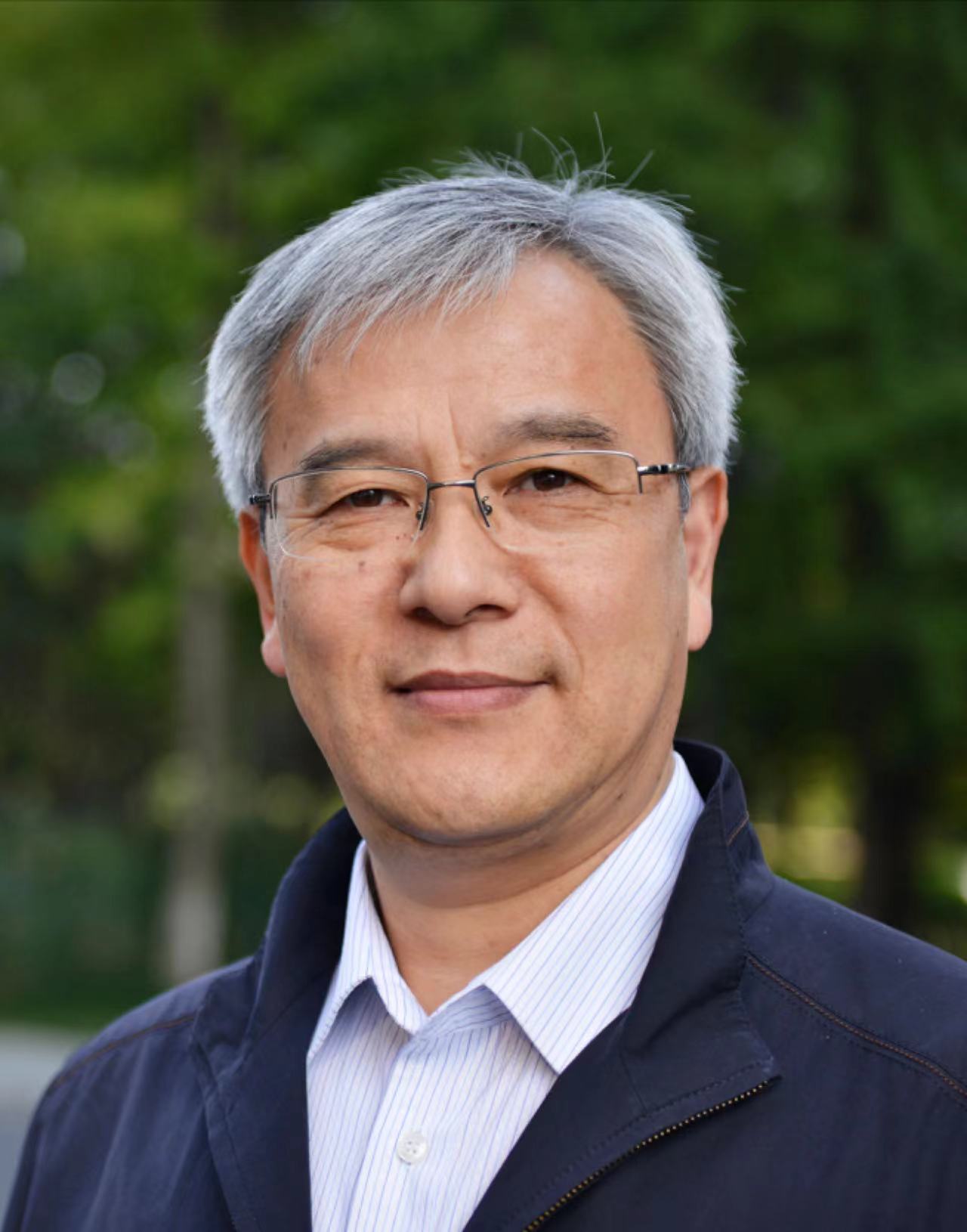 |
Title: A Feasible Framework for Smart ManufacturingProf. Jian ChuFounder of SUPCON Tech., China |
Abstract: We believe that the fourth industrial revolution is driven by software, especially by industrial software and artificial intelligence. In other words, software defined smart manufacturing will be realistic and easily implemented. We propose a feasible framework “1+2+N” for smart manufacturing, in which the “1”means an industrial operating system supOS, the “2” means two automations, one for process or production automation(PA), another for business automation(BA), the “N” means a lot of software. The industrial operating system supOS can manage all the facilities, equipments, materials, behaviors of operators around the production line, to make sure process safety, quality-improving, green-production and high-efficiency, i.e. Process Automation(PA). And also supOS can support all the applications of sales, supply chains, accounting, human resource, planning and scheduling etc. i.e. Business Automation(BA). More than 5300 real applications have been successfully implemented.
Bio:Jian Chu is the founder of SUPCON Technology. He was a professor in chemical process automation for more than 20 years. He once awarded 3 times of the National Sci. & Tech. Progressing Prizes and Inventing Prizes. He called himself as a Bridge-Worker for technology-transfer. Now he is the founder of Bluetron Digital Technology which is the vendor of supOS.
